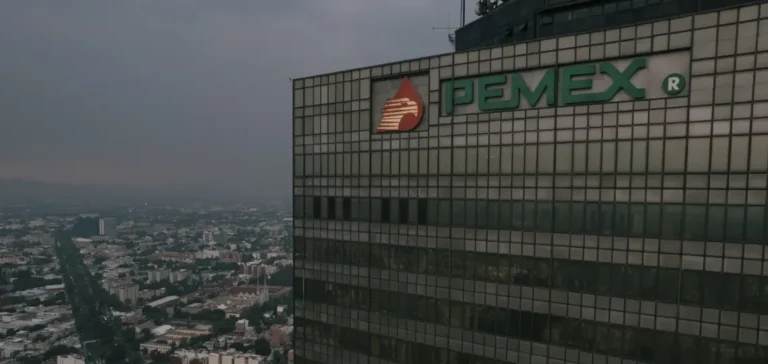Mexican state-owned company Petróleos Mexicanos (Pemex) announced a drop in crude oil and condensate production in the third quarter, while refining volumes rose. The group also reduced its net loss over the period, although it continues to face high levels of debt.
Production declines amid ageing oil fields
Pemex and its partners produced an average of 1.66 million barrels per day during the third quarter, marking a 6.7% decrease compared to the same period in 2024. This decline reflects the rapid depletion of legacy producing fields, particularly in the Gulf of Mexico, which struggle to sustain output. Recently discovered reserves have failed to offset the decline, complicating the government’s target to reach 1.8 million barrels per day.
Refining activity rises through internal capacity
Meanwhile, Pemex refined an average of 1.01 million barrels per day in its facilities during the quarter, a 4.8% increase compared to the previous year. This development aligns with the national strategy to add value to hydrocarbons via domestic refining. The company continues to optimise its processing capacities, despite technical and logistical challenges at its industrial sites.
Partial opening to private sector through mixed contracts
Chief Executive Officer Victor Rodriguez stated that the company aims to expand cooperation with private firms to boost output. Around 40 private entities have expressed interest, and ten projects have already been selected under so-called mixed contracts, while another eleven are under review. These partnerships are intended to improve operational efficiency, particularly in mature zones.
Financial losses shrink despite persistent debt
Pemex reported a net loss of 61.25 billion pesos ($3.34bn) for the third quarter, down from 161.34 billion pesos a year earlier. Quarterly revenue totalled 378.9 billion pesos, reflecting a year-on-year decline of about 11%. The company also booked a foreign exchange gain of 33.4 billion pesos, due to the depreciation of the dollar against the peso.
At the end of the quarter, Pemex’s total financial debt stood at $100.3bn, despite government-led efforts to reduce it. Outstanding debt to suppliers and contractors amounted to $28.13bn. Officials reiterated on Monday that no new net debt would be contracted during President Claudia Sheinbaum’s administration, and that financial debt would be cut by a further 10% by year-end.






















